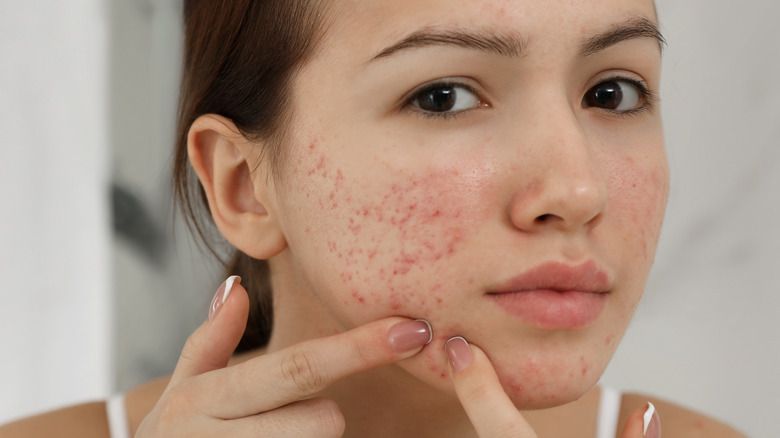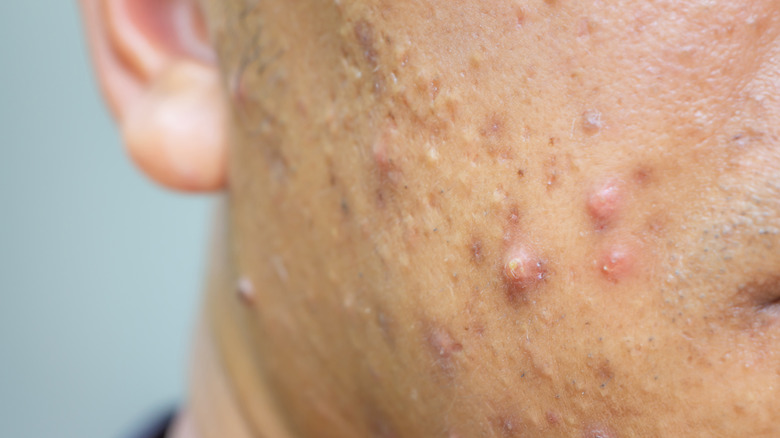The Real Difference Between Hormonal And Cystic Acne
Nobody wants to have acne, but it happens to most of us. In fact, a 2018 study published in The Journal of Clinical and Aesthetic Dermatology (JCAD) suggests that up to 95% of people experience acne during adolescence, a number that steadily decreases during their 20s and beyond. Nearly 51% of women and 43% of men experience acne during their 20s, with these numbers dropping to 15% and 7% respectively by the time people reach their 50s (per American Academy of Dermatology).
After adolescence, acne is more prevalent among women than men. This may be because women are more prone to fluctuating hormone levels around their periods, when they start or stop birth control pills, and during pregnancy, perimenopause, and menopause (per American Academy of Dermatology Association).
Dermatologist Dr. Robert Miller says that hormonal acne is caused by a hormone imbalance. In adults, it typically develops in the lower third of a person's face below their nose, around their mouth, or on their jawline. According to JCAD, most cases of acne are mild.
Cystic acne is more complicated and severe
Cystic acne is the most severe form of acne, with cysts that tend to be large, pus-filled, and deep within the skin. Cystic acne is the skin's reaction to pores getting clogged with dead skin cells, excess oil, and bacteria. As with hormonal acne, it tends to become less common with age (per the Cleveland Clinic).
Cystic acne can appear anywhere on the face (or elsewhere on the body). While hormone imbalance may play a role, it is far from the only culprit. Genetics, cosmetics, humidity, stress, and imbalanced pH levels can all make a person more vulnerable to developing cystic acne, according to Dr. Miller.
To prevent cystic acne, Miller recommends keeping yourself hydrated, washing your pillowcase often, and following a daily skincare regimen. In addition, Cleveland Clinic suggests keeping your hands away from your face, washing your hair regularly and keeping it away from your face, and maintaining a healthy diet. You'll also want to wash your face when you wake up and before you go to sleep, being sure to wash off all your makeup, as makeup can clog your pores.


